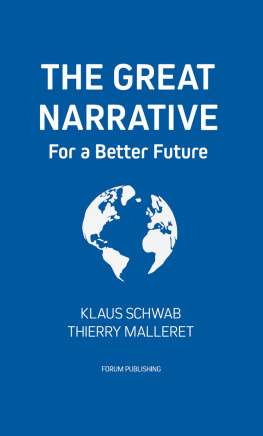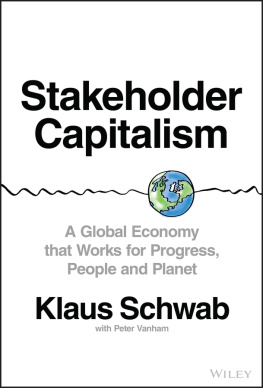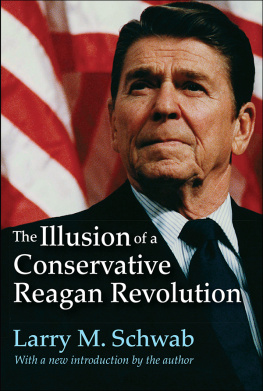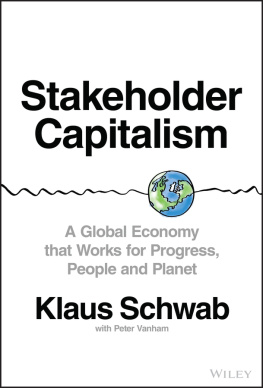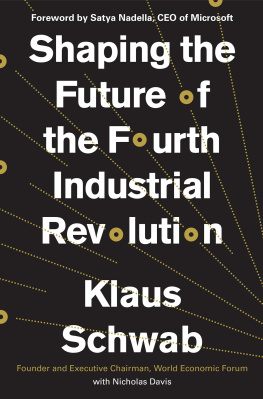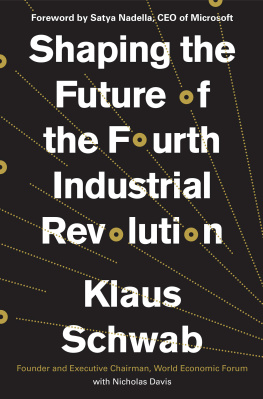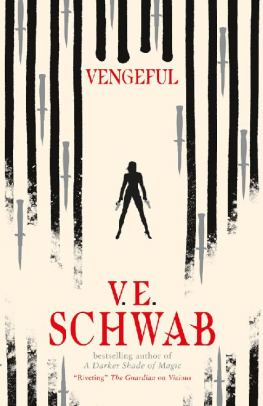Schwab Klaus - The Great Narrative
Here you can read online Schwab Klaus - The Great Narrative full text of the book (entire story) in english for free. Download pdf and epub, get meaning, cover and reviews about this ebook. year: 2022, publisher: Forum Publishing, genre: Romance novel. Description of the work, (preface) as well as reviews are available. Best literature library LitArk.com created for fans of good reading and offers a wide selection of genres:
Romance novel
Science fiction
Adventure
Detective
Science
History
Home and family
Prose
Art
Politics
Computer
Non-fiction
Religion
Business
Children
Humor
Choose a favorite category and find really read worthwhile books. Enjoy immersion in the world of imagination, feel the emotions of the characters or learn something new for yourself, make an fascinating discovery.
- Book:The Great Narrative
- Author:
- Publisher:Forum Publishing
- Genre:
- Year:2022
- Rating:4 / 5
- Favourites:Add to favourites
- Your mark:
- 80
- 1
- 2
- 3
- 4
- 5
The Great Narrative: summary, description and annotation
We offer to read an annotation, description, summary or preface (depends on what the author of the book "The Great Narrative" wrote himself). If you haven't found the necessary information about the book — write in the comments, we will try to find it.
The Great Narrative — read online for free the complete book (whole text) full work
Below is the text of the book, divided by pages. System saving the place of the last page read, allows you to conveniently read the book "The Great Narrative" online for free, without having to search again every time where you left off. Put a bookmark, and you can go to the page where you finished reading at any time.
Font size:
Interval:
Bookmark:
THE
GREAT
NARRATIVE
Klaus Schwab
Thierry Malleret
FORUM PUBLISHING
Edition 1.0
2022 World Economic Forum
All rights reserved
No part of this publication may be reproduced or transmitted in any form or by any means, including photocopying or recording, or by any information storage and retrieval system.
World Economic Forum
91-93 route de la Capite
CH-1223 Cologny/Geneva
Switzerland
Tel.: +41 (0)22 869 1212
Fax: +41 (0)22 786 2744
mail:
www.weforum.org
Print ISBN: 978-2-940631-30-8
ePub ISBN: 978-2-940631-31-5
About the authors

Professor Klaus Schwab (1938, Ravensburg, Germany) is the Founder and Executive Chairman of the World Economic Forum. In 1971, he published Modern Enterprise Management in Mechanical Engineering. He argues in that book that a company must serve not only shareholders but all stakeholders to achieve long-term growth and prosperity. To promote the stakeholder concept, he founded the World Economic Forum the same year.
Professor Schwab holds doctorates in Economics (University of Fribourg) and in Engineering (Swiss Federal Institute of Technology) and obtained a masters degree in Public Administration (MPA) from the Kennedy School of Government at Harvard University. In 1972, in addition to his leadership role at the Forum, he became a professor at the University of Geneva. He has since received numerous international and national honours, including 17 honorary doctorates. His latest books are The Fourth Industrial Revolution (2016), a worldwide bestseller translated into 30 languages, and Shaping the Future of the Fourth Industrial Revolution (2018).

Thierry Malleret (1961, Paris, France) is the Managing Partner of the Monthly Barometer, a succinct predictive analysis provided to private investors, global CEOs and opinion and decision-makers. His professional experience includes founding the Global Risks Network at the World Economic Forum and heading its Programme team.
Malleret was educated at the Sorbonne and the Ecole des Hautes Etudes en Sciences Sociales, Paris, and at St Antonys College, Oxford. He holds masters degrees in Economics and History, and a PhD in Economics. His career spans investment banking, think tanks, academia and government (with a three-year spell in the prime ministers office in Paris). He has written several business and academic books and has published four novels. He lives in Chamonix, France, with his wife Mary Anne.
Contents
Foreword
We live in times of unprecedented change and have, as never before, the responsibility and potential to build a better future together.
Times of unprecedented change, with major economic, environmental, geopolitical, societal and technological challenges that coincide and amplify each other, require unprecedented action. Premised on the belief that we have both a responsibility and the potential to respond to these issues, The Great Narrative is a call to collective and individual action. The thinking behind the book is inspired by a profound conviction that to ensure a better future for humankind, the world needs to be more resilient, more equitable and more sustainable.
In COVID 19: The Great Reset, published in July 2020, we raised the curtain on these issues. The Great Narrative places a cast of possible solutions to them on centre stage. What the epilogue to our human saga will be will depend on which narrative prevails.
Why do narratives matter? As human beings and social animals, we are storytelling creatures, and the stories we tell (the narratives) are our fundamental tool of communication and transmission. Narratives are how we make sense of life; they provide us with a context, thanks to which we can better interpret, understand and respond to the facts we observe. Most importantly, compelling narratives have the power to inspire us to act. But why a single great narrative? Because the constellation of important interrelated stories that this book offers coalesce around one central story. It addresses a broad spectrum of issues aiming to shed light on whats coming and to offer some clarity on our options in terms of a collective response. Even so, The Great Narrative proposes a framework for future action, not a prescription.
The Great Narrative expresses our personal convictions about the best way forward. We recognize that the problems we collectively face are considerable, but we also believe that solutions do exist and are within our grasp. In that sense, it is a hopeful book that categorically rejects the doomsday mindset consigning humanity to a future of oblivion. Human creativity, ingenuity and innate sociality are much too powerful for that and can prevail.
Our views and convictions are informed by our humanistic values: the book is evidence-based and informed by science. It is also underpinned by 50 conversations that took place with foremost global thinkers and opinion-makers representing a variety of academic disciplines and points of view. Some corroborated our convictions. Others challenged them. All enriched our thinking. We are grateful to them.
15 December 2021
Klaus Schwab
Thierry Malleret
1. Introduction
What future do we face?
What future do we want?
What must we do to get there?
These three questions preoccupy us all. The Great Narrative provides a response to the first two and lays the foundations to address the third. We cant predict the future. However, we can imagine it and even design it; no outcome is predetermined and, as cognitive human beings, we retain the agency to shape the world we want. Perhaps most critically, we can also prepare for the future, by confronting both the risks that we can mitigate and the things that will surprise us.
The pandemic was one such thing. Many international organizations and individuals had warned for years that a pandemic would occur but, despite this, it took most of the world by complete surprise. Now (in December 2021), almost two years since it began, the pandemic seems never-ending and continues to drag on. We hope that the COVID-19 crisis will soon be over, but will it? There is always a beginning and an end
Indeed! Lessons from past pandemics tell us how hard it is to understand how, exactly when and why they end, and what their wide-ranging effects are. Throughout history, when the physical disease, measured in mortality or infection rates, subsides, the impact of the pandemic still remains. It continues to affect our lives, as economies and societies progressively adjust, and individuals strive to return to a semblance of normalcy. The psychological shock provoked by different forms of fear triggered by the disease like the fear of illness, the fear of isolation, the fear of others or even the fear of the future takes much longer to subside. It is already clear that the COVID-19 crisis has put into motion momentous changes that will unfold in a multifaceted fashion. Some of these changes were already apparent prior to the crisis but have been accelerated (even turbo-charged, as some pundits would argue) by the pandemic. Among them are the acceleration of automation and innovation, rising inequalities, the growing power of tech and surveillance, the rising rivalry between the United States and China, the partial retreat from globalization, the economic paradigm shift, and an increasingly fractious geopolitical landscape. But other changes now in the offing go beyond a mere acceleration of pre-existing trends, including a handful that would have seemed inconceivable before COVID-19 struck. The reconsideration of our social priorities (as expressed notably in the Great Resignation phenomenon), more radical welfare and taxation measures, new forms of state intervention, the rising appeal of well-being policies and a new appreciation for nature these are just a few examples of new systemic changes that will grow in relevance.
Next pageFont size:
Interval:
Bookmark:
Similar books «The Great Narrative»
Look at similar books to The Great Narrative. We have selected literature similar in name and meaning in the hope of providing readers with more options to find new, interesting, not yet read works.
Discussion, reviews of the book The Great Narrative and just readers' own opinions. Leave your comments, write what you think about the work, its meaning or the main characters. Specify what exactly you liked and what you didn't like, and why you think so.

